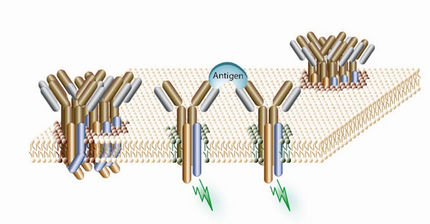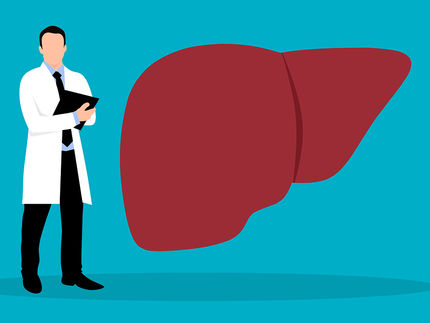Revolution in the fight against autoimmune diseases: Granite Bio debuts with $100 million of capital
Breakthrough antibody therapies target the roots of inflammation and promise breakthroughs for millions of patients
Granite Bio AG has emerged from stealth with $100 million in funding. This includes a $30 million Series A led by founding investors Versant Ventures and Novartis Venture Fund, and a $70 million Series B led by Forbion and Sanofi Ventures.
Granite’s pipeline features two first-in-class antibodies targeting multiple autoimmune diseases that address large market opportunities.
GRT-001 depletes pro-inflammatory monocytes, key drivers of autoimmunity and inflammation. In non-human primate studies, GRT-001 efficiently and dose-dependently depleted pro-inflammatory monocytes. Treatment was well tolerated and spared tissue-resident macrophages, which are important for tissue homeostasis. GRT-001 is currently in Phase 1a testing in healthy volunteers and is expected to enter a Phase 1b trial in patients with inflammatory bowel disease later this year.
GRT-002 blocks interleukin-3, a key player in autoimmune inflammation and type II inflammation, offering a new approach to treating itch and allergy. The molecule is in preclinical development and is expected to enter clinical trials in 2026.
Both of Granite’s lead molecules were developed in collaboration with Versant’s Ridgeline Discovery Engine in Basel, Switzerland, and originated from the laboratories of Professor and Scientific Co-Founder Matthias Mack at University of Regensburg.
"Granite is pioneering a new approach to tackling inflammation, autoimmunity, and fibrosis by addressing fundamental disease drivers at their source,” said Patrick Loustau, president and CEO. “With the support of an exceptional investor syndicate and a world-class team, we are advancing a pipeline of first-in-class therapies with the potential to transform patient outcomes. I look forward to working with the management team to deliver groundbreaking treatments that address the urgent unmet needs in immunology and beyond."
“Despite multiple immunology-based therapeutic approaches currently commercialized, patients with inflammatory disorders continue to experience a lack of symptom control and relapse,” said Nigel Sheail, partner at Versant and Granite board member. “Granite has the potential to enable a real step change for patients with its innovative programs that target key fundamental disease pathways.”
“I am proud to support Granite as it advances its lead assets using a truly differentiated approach to tackling inflammation at its root,” said Rogier Rooswinkel, Ph.D., General Partner at Forbion and Granite board member. “With the strength of this investor syndicate and an exceptional leadership team, Granite is well-positioned to drive its pipeline forward and deliver meaningful new therapies for patients.”
Leadership team
-
Patrick Loustau, president and CEO, brings broad and successful experience in building and developing organizations in biotech and pharmaceutical companies. Prior to joining Granite Bio, he was the CBO of Amolyt Pharma until its acquisition by Alexion (AstraZeneca Rare Disease) for up to $1.05B in July 2024. Before Amolyt, he was CEO of Zumbro Discovery Inc. and president of Zafgen Inc. Earlier in his career, he led global organizations at Bristol Myers-Squibb and Novo Nordisk.
Dominik Hartl, M.D., CMO, has extensive background in immunology and fibrosis drug development. He previously served as CMO for Quell Therapeutics, a company specialized in immune-mediated diseases. Before that, he held leadership positions in Immunology Drug Development/Translational Medicine at Novartis (NIBR/Immunology), Roche (pRED/I2O) and Galapagos Pharma. Dominik is a board-certified M.D. and holds an adjunct professorship in Pediatric Immunology at University of Tübingen.
Gijs van den Brink, M.D., Ph.D., CSO, possesses deep academic and industry experience in immunology and IBD. Currently also an Operating Partner at Forbion, he previously served as SVP and Global Head of Immunology, CVM, ID, and Ophthalmology Discovery and Early Development at Roche. Before that, Dr. van den Brink was head of Immunology discovery and early and late-stage clinical development at GlaxoSmithKline plc. Gijs previously was a gastroenterologist and professor of experimental gastroenterology and co-authored over 150 peer-reviewed scientific publications.
Eliot Forster, chairperson of the board, has more than 30 years of extensive biotech experience from both executive and non-executive roles. He was CEO of F-star Therapeutics until its acquisition by inovX Pharma LTD in March 2023, and formerly CEO of Immunocore. Eliot is currently CEO of Levicept LTD, non-executive chair of Tessellate BIO and a director at Immatics.
Other news from the department business & finance
Most read news
More news from our other portals
Something is happening in the life science industry ...
This is what true pioneering spirit looks like: Plenty of innovative start-ups are bringing fresh ideas, lifeblood and entrepreneurial spirit to change tomorrow's world for the better. Immerse yourself in the world of these young companies and take the opportunity to get in touch with the founders.
See the theme worlds for related content
Topic world Antibodies
Antibodies are specialized molecules of our immune system that can specifically recognize and neutralize pathogens or foreign substances. Antibody research in biotech and pharma has recognized this natural defense potential and is working intensively to make it therapeutically useful. From monoclonal antibodies used against cancer or autoimmune diseases to antibody-drug conjugates that specifically transport drugs to disease cells - the possibilities are enormous

Topic world Antibodies
Antibodies are specialized molecules of our immune system that can specifically recognize and neutralize pathogens or foreign substances. Antibody research in biotech and pharma has recognized this natural defense potential and is working intensively to make it therapeutically useful. From monoclonal antibodies used against cancer or autoimmune diseases to antibody-drug conjugates that specifically transport drugs to disease cells - the possibilities are enormous

























































